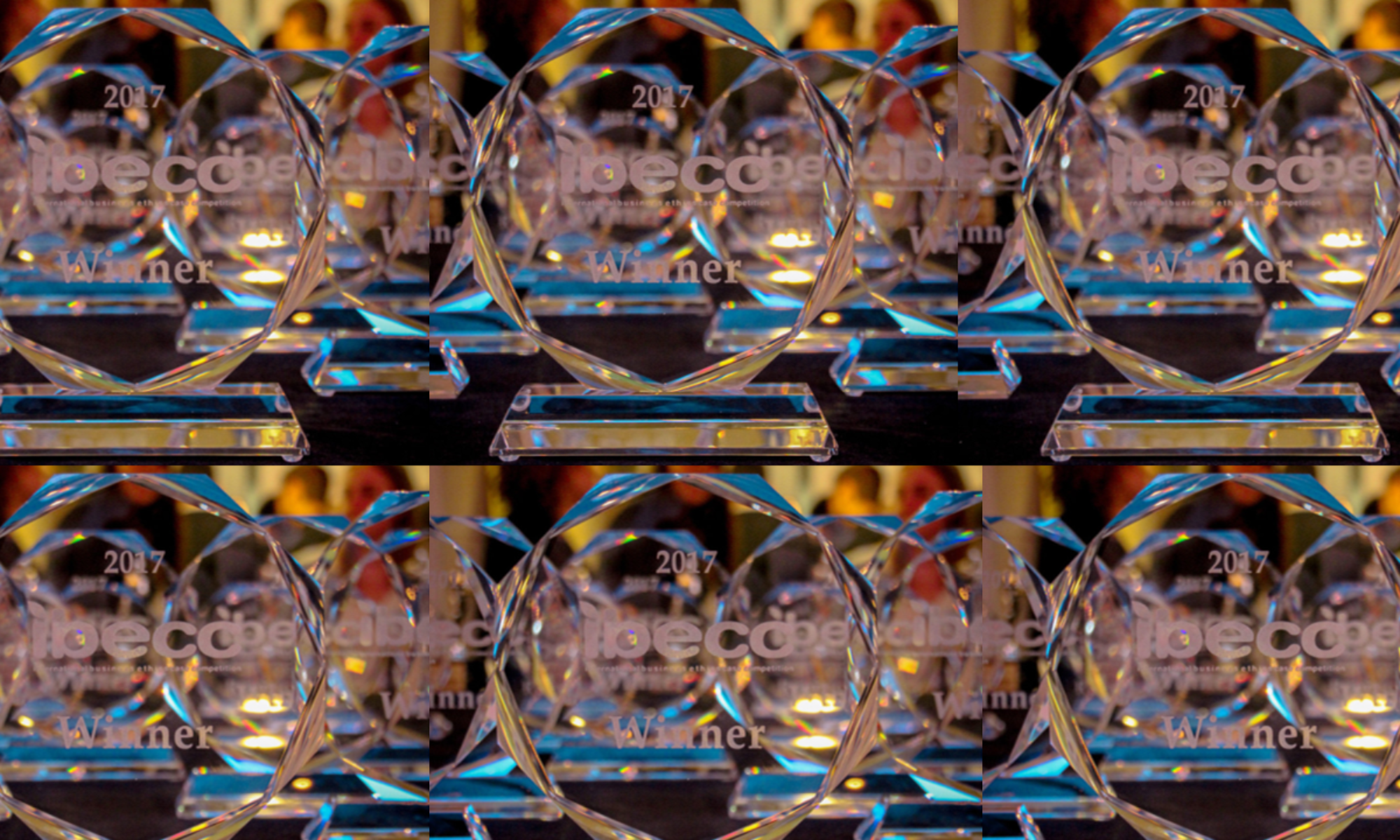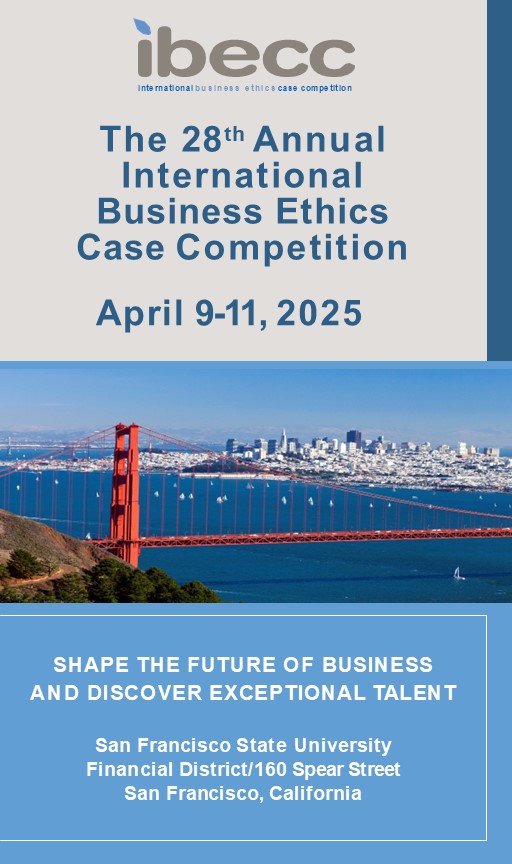Click image for e-brochure.
IBECC PROVIDES ACCESS TO AN EXCEPTIONALLY TALENTED GROUP OF POTENTIAL EMPLOYEES OR INTERNS. HELP US HELP YOU FIND YOUR NEXT GREAT NEW HIRE.
EARLY WARNING SYSTEM AND ENHANCED RISK ANALYSIS
Unlike most case competitions, IBECC requires teams to choose their own topics. As a result, students regularly identify issues that are “just over the horizon”–problems that don’t catch the attention of most corporations or the business press for months. Examples include:
2002 Dangerous nutritional supplements
2004 Subprime lending
2005 Fannie Mae
2006 General Motors’ risk of bankruptcy
2010 Social media policies and employee free speech
2011 Triclosan in toothpaste
2014 In vitro (lab synthesized) meat
2018 Artificial intelligence
2015 Self-driving cars
2018 Cryptocurrencies
2021 Child gambling
2022 Building codes and the climate crisis
2023Yeast based collagen
As good as predictive algorithms may be, they need to be supplemented by distinctly human, “soft” skills to generate a more complete picture. IBECC teams use perception, imagination, and insight to identify future risks, opportunities, and trends. Recent teams
have shown they are particularly perceptive at identifying issues of concern to Millennials and Gen Z.
INSIGHT REGARDING CHALLENGES & OPPORTUNITIES RELATED TO MILLENNIALS AND GEN Z
Every business acknowledges their future depends on the 20-40 age group. This key demographic is where their most recent employees come from and represents the largest customer segment. As one commentator puts it, “The oldest millennial and the oldest Gen Zer are in charge right now—of spending, influence and the economy.” However, this demographic poses special challenges to corporations in a host of areas: working in an office versus working remotely; work-life balance; strong allegiance to certain social values with the expectation that the companies they work for and buy from will support them; use of social media.
IBECC will ask teams to pay special attention in their analyses to challenges and opportunities related to this demographic. How is the team’s “problem” seen when viewed from a Millennial/Gen Z perspective as opposed to a traditional business perspective? How
does their “solution” leverage this demographic’s distinctive concerns and abilities so that it ensures the company’s long-term success and the interests of all stakeholders?
ACCESS TO TALENT AND INSIGHT
• At the competition itself, we will facilitate contact between corporate representatives and interested students. We will also be happy to distribute literature about our partners’ companies– particularly their DEI and ESG initiatives.
• We will provide real-time access to all presentations via Zoom (resources permitting).
• After the competition, partners will receive copies of all teams’ executive summaries and slide decks, as well as videos of all presentations.
BRAND ENHANCEMENT AND ESG PROFILE
Partnering with IBECC sends a clear message to all employees, customers, and investors about a company’s commitment to ethics. This partnership is especially important as investors look for evidence of commitment to ESG principles.
TESTIMONIALS
“IBECC students are attractive as potential employees in several ways. They demonstrate initiative and adaptability. They have the ability to perform technical analyses of contemporary problems and then communicate critical observations and recommendations in a pragmatic and straightforward fashion. They collaborate effectively
on their team, engage with an audience in a novel environment, and deploy concepts and critical thought for resolving the issues. They listen to feedback from the judges, and then revise their presentations accordingly as they proceed in the competition. Finally, their
presentation skills cannot be over-emphasized. This is how Corporate America communicates, comes together, and engages leadership with recommendations and proposals to deploy the company’s resources—a critical element of how ‘business works’ today.”
— Kevin Harrington, Director, R&D, Alcon.
“Many people in business, even those with many years of experience, don’t understand the basics of business ethics as it relates to day-today work. IBECC participants make excellent employees because the competition gives them an actionable understanding of business
ethics. They learn how to integrate ethics into everyday business situations. Their skills in research, analysis, and critical thinking far surpass those whose default strategy for dealing with an unknown topic is simply to use Google. Aware of how many different opinions
there will be about the ethical issues a company faces, IBECC students learn how to engage in respectful, constructive dialogue with others focused on achieving consensus for an organization. IBECC participants are immediate and valuable assets to an organization.”
— Tim C. Mazur, Ethics and Compliance Leader

